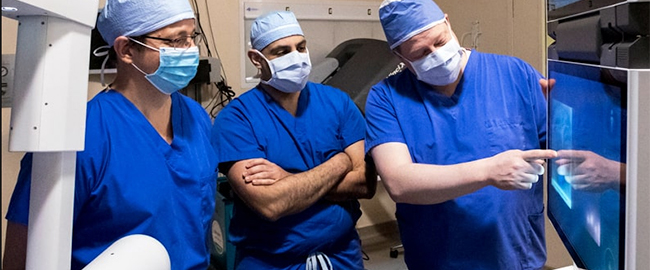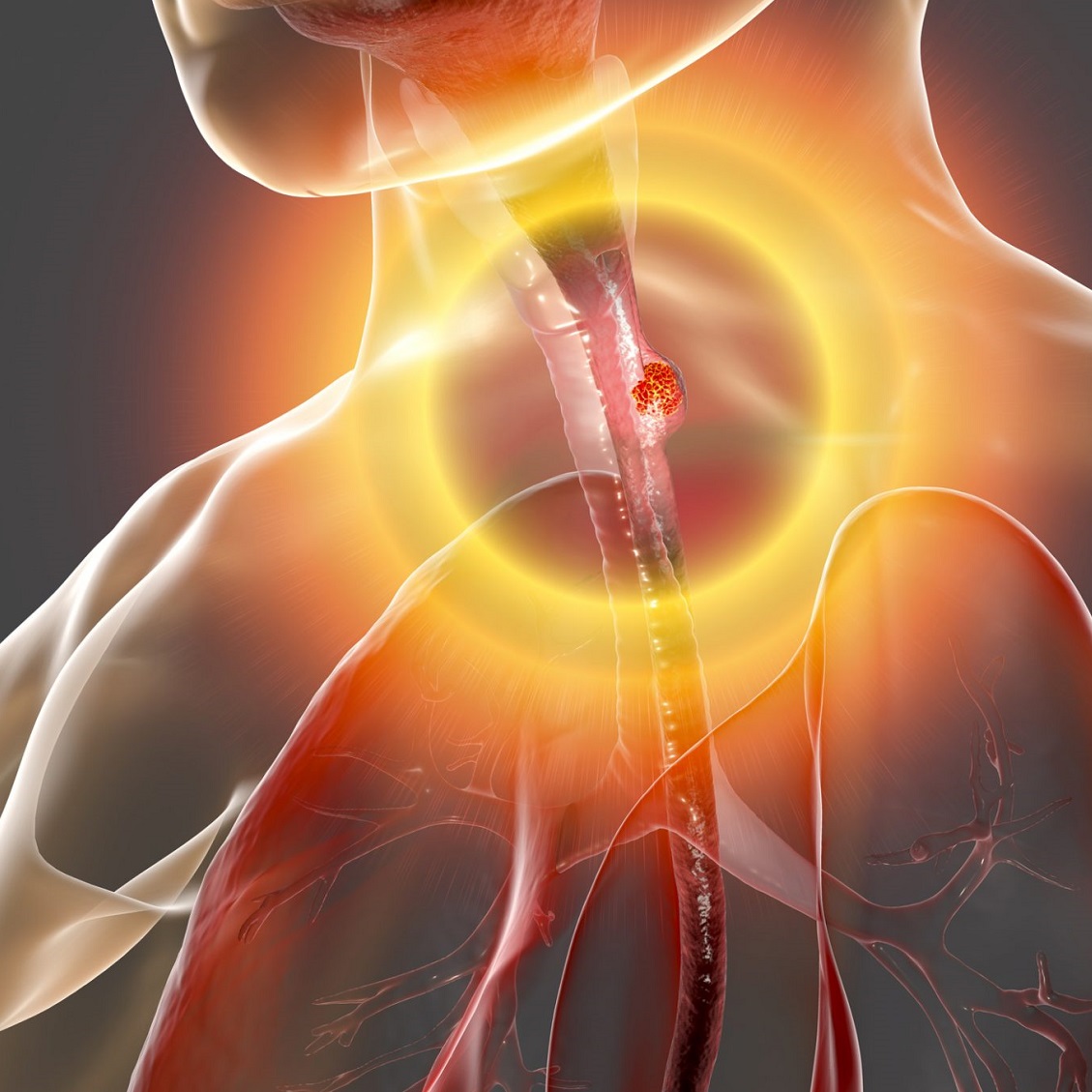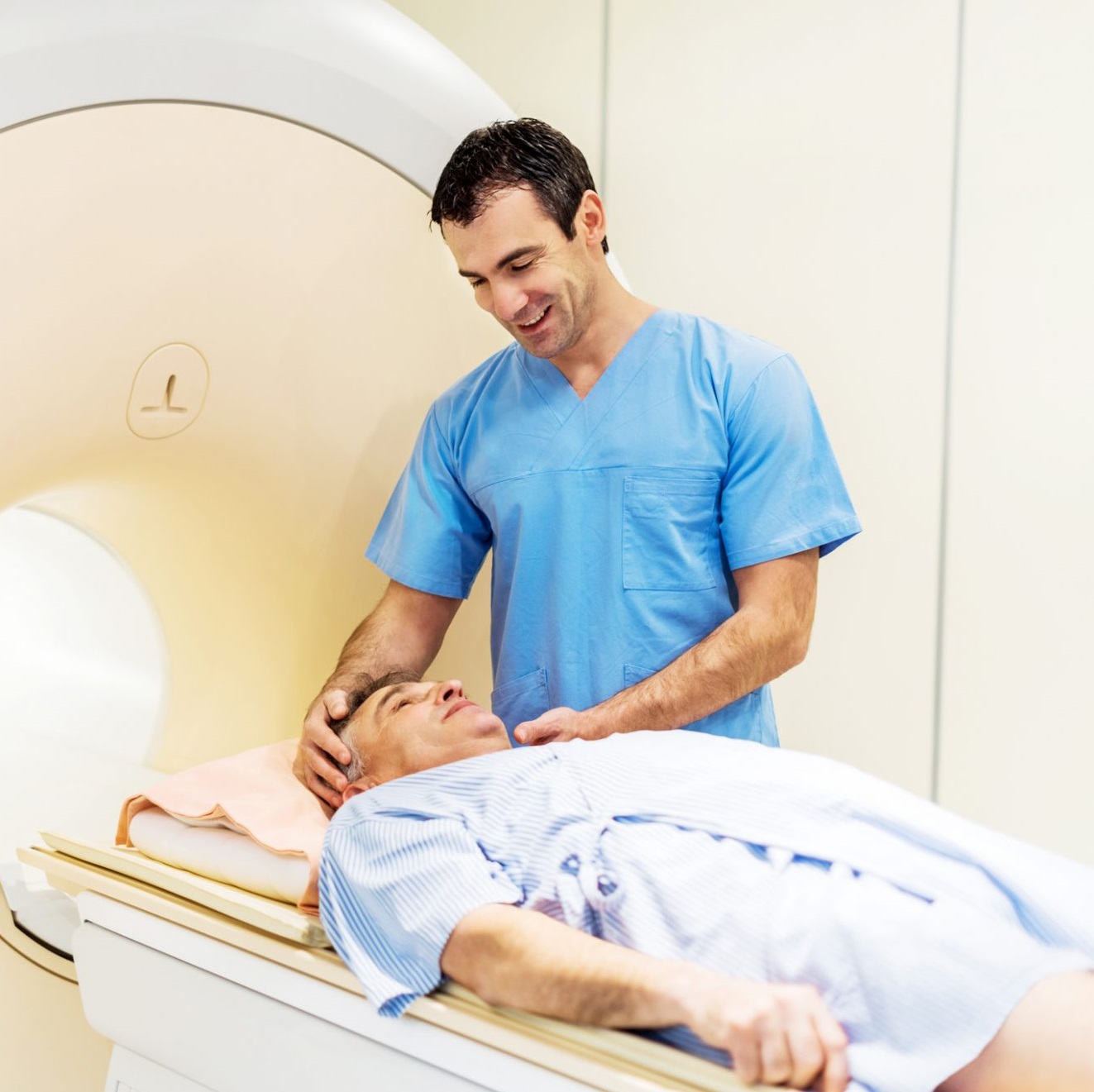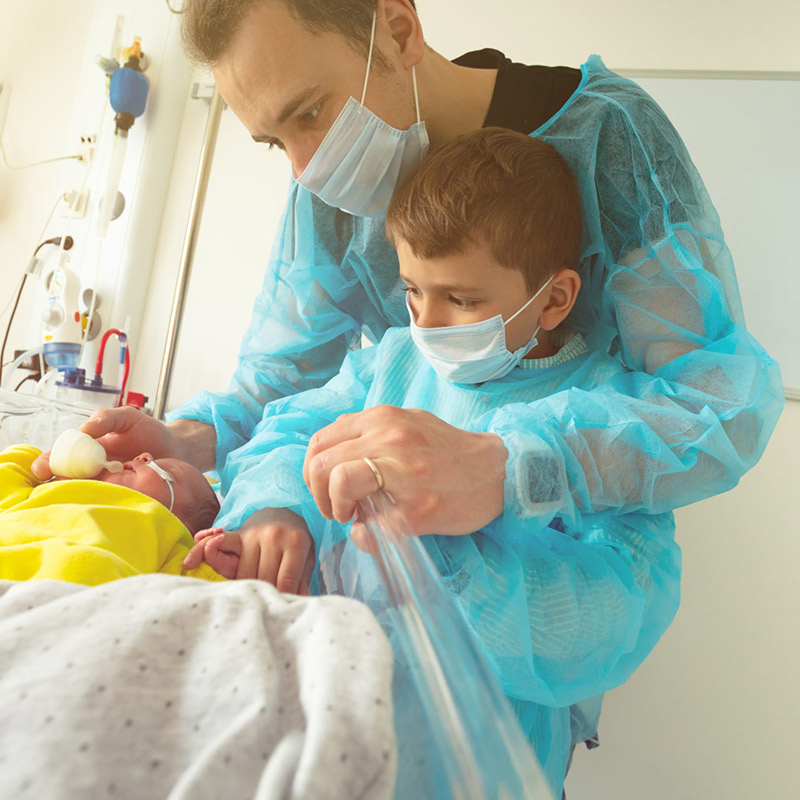Esophageal Cancer
Esophageal cancer is a rare and complex disease that requires the expertise of a specialized thoracic cancer team.
At the John Theurer Cancer Center, our thoracic surgeons are among the most experienced in the region at treating esophageal cancer. Patients benefit from access to innovative treatments and clinical trials of promising new therapies that are not available elsewhere in the area.
What is Esophageal Cancer?
The esophagus is a hollow tube in the upper digestive tract that transports food and liquids from the mouth to the stomach. Esophageal cancer typically falls into one of three types:
The most common type of esophageal cancer, adenocarcinoma develops in the gland cells that produce mucus. It is often linked to Barrett’s esophagus, GERD (gastroesophageal reflux disease), or obesity, all of which can cause chronic inflammation in the lower esophagus.
A rare type of esophageal cancer that starts in neuroendocrine cells, which release hormones.
This type of esophageal cancer forms in the thin cells lining the esophagus. It is most commonly associated with smoking and alcohol consumption.









